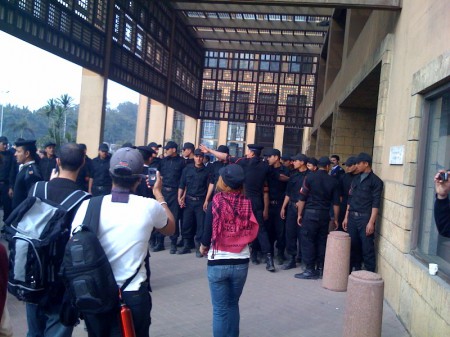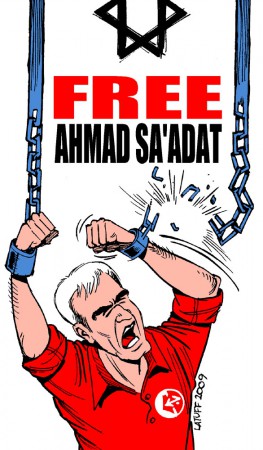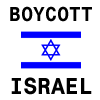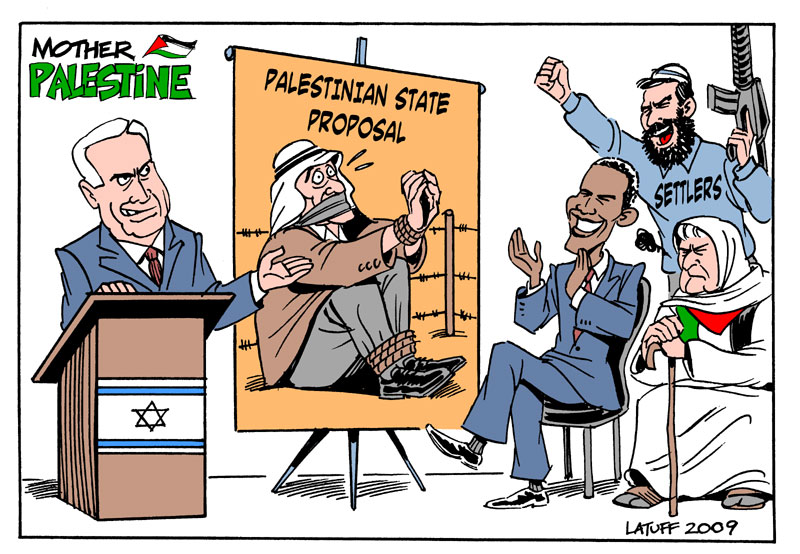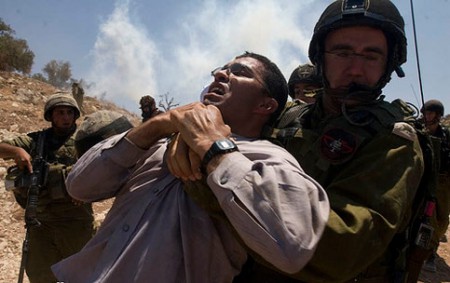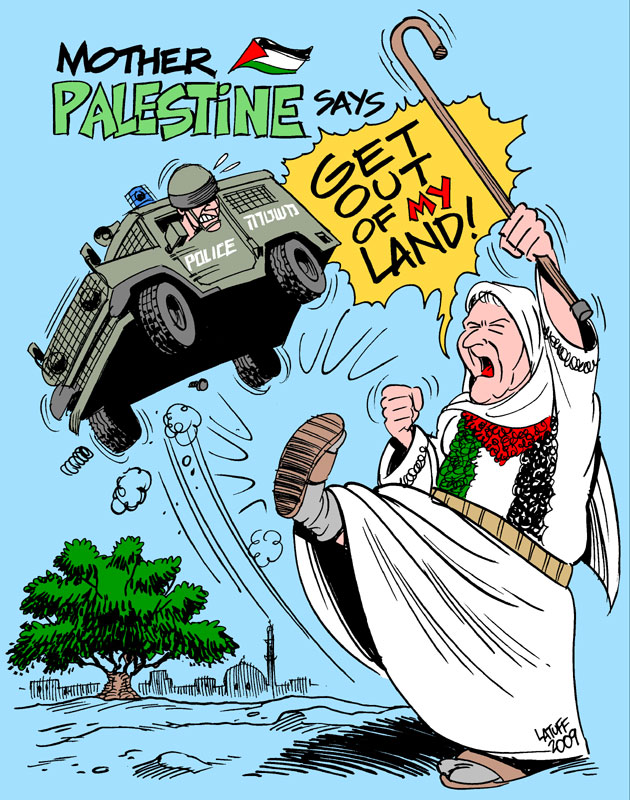
While his security police harass the Gaza Freedom March demonstrators from across the globe, and block their travel to Rafah, Mubarak found the right moment to meet with the Israeli PM, and offer him brotherly support. One US lackey supports another, naturally.
Egypt and Israel differ over peace: Al Jazeera online
“]![Netan and Mubarak Netanyahu, left, and Mubarak discussed issues including a prisoner exchange deal [EPA]](http://gaza.haimbresheeth.com/wp-content/uploads/2009/12/Netan-and-Mubarak.jpg)
Netanyahu, left, and Mubarak discussed issues including a prisoner exchange deal [EPA]
Israeli and Egyptian leaders have met in Cairo to discuss US-backed efforts to relaunch peace talks between Israel and the Palestinians.
Neither Binyamin Netanyahu, Israel’s prime minister, nor Hosni Mubarak, Egypt’s president, spoke to journalists after the meeting on Tuesday, though the Israeli PM’s office said “talks were in-depth and friendly”.
However, Ahmed Abul Gheit, Egypt’s foreign minister, said peace talks could not be relaunched until Israel halts its settlement activity.
“We have seen that the Israeli prime minister wants to move ahead (with negotiations), and he insists on moving ahead, but we insist on an agreed platform,” Abul Gheit said.
“There are conditions … we will not negotiate while settlement continues.”
Egypt also wants to see a defined time frame for the talks.
“Any negotiation, for which a basis and a goal is agreed, must have a time-frame,” Abul Gheit said.
Prisoner swap
The two leaders also discussed a prisoner swap between Israel and the Palestinians that would see the release of hundreds of Palestinian prisoners in exchange for Gilad Shalit, an Israeli soldier captured in Gaza three and half years ago.
Abul Gheit said the deal was still “suspended” and that a Hamas delegation currently in Syria was to head back to Cairo for talks with officials on the issue.
Fahmi Huwaidi, an Egyptian political analyst, told Al Jazeera that a deal on a prisoner exchange between Israel and Hamas could be reached during the visit.
“Israel seeks by this visit to confirm the importance [it] gives to Egypt’s role in this matter, particularly after Germany began to mediate.
“The Israeli prime minister seeks to gain concessions from Hamas in the prisoners exchange deal, after the pressure currently being put on the movement.
“This visit is also an attempt by an ally to save his ally, after the criticism against the Egyptian leadership concerning the building of a steel wall on the Egypt-Gaza border.”
Egypt has been criticised for keeping closed its border with the Gaza Strip, the only Gazan border not affected by an Israeli blockade, and building a wall along the divide.
‘New initiative’
The US administration of Barack Obama, the US president, is said to be drafting letters of guarantee for Israel and the Palestinians to serve as a basis for the relaunch of peace talks, stalled for almost a year.
“We’ve been hearing increasing reports that the Americans may be about to unveil a new diplomatic initiative,” Mouin Rabbani, a senior fellow at the Institute of Palestinian Studies, told Al Jazeera.
“The mere fact of Mubarak meeting Netanyahu in Egypt is in and of itself an instrument of pressure on Mahmoud Abbas [the Palestinian president] to accept whatever conditions the Americans may be putting forth.
“The message that is coming from the Egyptian leadership now is that what the Americans are going to propose is good enough for the most important Arab state and therefore it should be good enough for the Palestinian leadership,” he said.
One Arab diplomat in Cairo was quoted by the AFP news agency as saying that George Mitchell, the US special envoy to the Middle East “will present two draft letters of guarantee, one for Israel and one to the Palestinian Authority during his next visit to the region”.
Arrest request
Egypt had already asked for written US guarantees before peace negotiations could resume, in order to ensure that their aim is the establishment of a Palestinian state within 1967 borders.
But peace efforts have already been overshadowed by Israel’s announcement on Sunday that it had invited tenders for the construction of hundreds of new homes for Jewish settlers in occupied Arab East Jerusalem.
The announcement prompted criticism from the US and EU, alongside Egypt.
Netanyahu announced a 10-month moratorium on new housing projects in Jewish settlements in the occupied West Bank in November, but that suspension was not applied to East Jerusalem, which was annexed by Israel in 1967.
Separately, four Egyptians filed a request with the country’s prosecutor general demanding Netanyahu be arrest over his treatment of the Palestinians.
In their request, the activists stated they were “filing this on grounds that the constitution states that Egypt is part of the Arab nation … and that the Palestinian issue is the central Arab cause”.
Israel court rules Palestinians can use highway:BBC
Israel’s Supreme Court has ordered the military to let Palestinians use a road that runs through the West Bank.
Palestinians were barred from the Jerusalem to Tel Aviv Highway 443 in 2002 when militants shot dead a number of Israelis in their cars.
The case was brought by Palestinians who live in the villages along the 12.5-mile (20-km) West Bank section of the road.
Human rights groups hailed the decision saying it was “a huge victory”.
The court said the military did not have the authority to impose the kind of sweeping limitation that “in effect transforms the road into a route designed for ‘internal’ Israeli traffic alone”.
‘Huge victory’
The road was built on land appropriated from the villagers who lived along its course.
But villagers are prevented from getting on the highway by concrete barricades and military checkpoints along its length.
The military have five months to implement the ruling and dismantle the barriers.
It is the second time in recent months the court has ordered the military to open roads to Palestinians.
The Association for Civil Rights in Israel, which provided legal representation to the Palestinians, said it was “a huge victory”.
But the ruling was condemned by Israeli right-wingers.
Cairo blocks Gaza aid convoy: Financial Times
By Heba Saleh in Cairo
Published: December 28 2009 02:00
Egypt has blocked a humanitarian aid convoy for Gaza and barred more than 1,000 international campaigners from visiting the territory, writes Heba Saleh in Cairo .
The campaigners want to gain access to Gaza via the Rafah border crossing to show solidarity with the Palestinians on the first anniversary of Israel’s military operation against the enclave,
Some 150 aid trucks organised by the Viva Palestina campaign led by George Galloway, a British member of parliament, are stuck in the Jordanian port of Aqaba, because the Egyptian authorities have refused to grant them permission to enter the country through the nearby Red Sea port of Nuweiba.
Egypt says the convoy would be allowed to enter Egypt only if it arrived in the port of Al Arish on the Mediterranean coast because that is the approved “mechanism” for delivering aid to Gaza. This would add days and costs to the journey, as it will entail hiring ships and sailing around the Sinai peninsula through the Suez canal.
Egypt has also separately barred 1,300 campaigners from travelling overland from Cairo to Gaza to join a march with local people to publicise the plight of the besieged Gazans.
The decisions are likely to stoke further criticism of the Egyptian government by an electorate uneasy about the country’s participation in the blockade against Gaza. The unease deepened this month after it emerged that Egypt has been constructing what is described as an underground steel wall along the 14-kilometre border to prevent the supply of goods and weapons to Gaza through smugglers’ tunnels.
The foreign minister was quoted as saying that any construction work being undertaken was to protect Egyptian national security.
Israel’s offensive, blockade strangling Gaza, its people: jsonline
Posted: Dec. 28, 2009
One year after Operation Cast Lead, Israel’s military offensive against Gaza that began on Dec. 27, 2008, residents there are still struggling to recover from the worst attack against Palestinians since the Six Day War in 1967.
A blockade of Gaza’s borders implemented by Israel, now well into its third year and made worse after Operation Cast Lead, has crippled the economy and has prevented the Palestinians of Gaza from rebuilding their lives after last winter’s war, which killed 1,409 people – including 355 children – and destroyed hospitals, water treatment plants, factories, schools and mosques.
Israel’s blockade is slowly strangling Gaza, a tiny strip of land roughly two-thirds the size of Chicago that is bordered by Israel, Egypt and the Mediterranean Sea.
The siege prohibits the export of Palestinian goods and severely limits the import of humanitarian supplies, such as food, medicine and reconstruction materials. The United Nations reports that Israel allows into Gaza less than 25% of the goods it did before the siege began in June 2007. It has crippled Gaza’s economy and plunged 90% of its 1.5 million inhabitants into poverty. Unemployment stands at more than 50%.
This fall, Israel permanently closed the Nahal Oz crossing, the sole oil and gas terminal serving Gaza. Severely restricted supplies – less than 20% of what is needed – are shipped through another crossing. Palestinian media report more than 30 service stations have closed for lack of fuel. Hospitals have ceased cooking food or doing laundry – both of which negatively affect hygiene and health in those institutions.
Health care is one of the blockade’s biggest casualties. At least 362 people have died since June 2007 because they could not access appropriate medical care, according to the Palestinian National Authority Ministry of Health. Twenty-two people died in the first eight months of 2009 alone. As of June, nearly 20% of essential drugs for things like kidney and heart disease were depleted, according to the Gaza Central Drug Store.
International law guarantees everyone the right to an adequate standard of living – to work, food and water. Israel’s blockade denies the Palestinians of Gaza these rights. The Fourth Geneva Convention, to which Israel is a signatory, stipulates that occupiers must protect the people it occupies – including providing adequate medical care. The U.N. says Israel’s blockade amounts to collective punishment, prohibited under international humanitarian law.
The United States makes aid to foreign countries contingent upon human rights practices. Yet the U.S. annually awards Israel more than $3 billion in unconditional military and other aid. Washington’s infrequent warnings to Israel about human rights abuses carry no weight so long as the equivalent of $7 million per day continues to flow to Israel with no strings attached.
The U.S. recently vetoed a measure in the U.N. Human Rights Council supporting the Goldstone Report, the U.N.-sanctioned study of Operation Cast Lead that said Israel committed war crimes and possibly crimes against humanity. This veto – along with the continuing billions of dollars in foreign aid – allows Israel to act with impunity. U.S. support of Israel hurts our standing in the Arab and Muslim worlds and weakens our negotiating stance with all parties to the conflict.
As Americans, we should be outraged our tax money supports Israel and its illegal and inhumane siege of Gaza. As the New Year approaches, perhaps leaning on our elected officials to hold Israel accountable by threatening to withhold aid should be on our list of resolutions.
Munjed Ahmad is a Milwaukee attorney and vice chairman of American Muslims for Palestine.
28 kilometers of distilled apartheid: Ha’aretz
By Gideon Levy
This highway has told the whole story. They pave a road, expropriate Palestinian land and the High Court of Justice approves the expropriation, in its words, “provided that it is done for the sake of the local population.”
Afterwards they prevent the “local population” from using the road, and finally they build a wall with drawings of creeks and meadows so we don’t see and don’t know that we are driving on an apartheid road, that we are traveling on the axis of evil.
Apartheid? What are you talking about? It’s just a freeway to the capital, because that’s how we like it best. Going (quickly) along with the occupation and feeling like there is none. That way the highway has fulfilled another secret national wish – that they get out of our faces.
How many of the masses of travelers on this high road to the capital have looked to their left and right? How many of them have noticed the 12 roads blocked by iron roadblocks and piles of garbage? (Is there another country that blocks roads with garbage?) And what about the 22 confined and concealed villages alongside the road? How many people have asked themselves how it is possible that a road that was paved in the heart of the Land of Palestine has no Palestinians traveling on it? How many have noticed the sign that leads to the “Ofer [army] camp”, another whitewashed name for a detention facility or the hundreds of prisoners detained there, some without trial?
How many have observed the inhabitants trudging over the rocky ground to get to the neighboring village? It’s 28 kilometers of distilled apartheid: the Jews on top on the freeway becoming of the lords of the land. Palestinians down below, going on foot to the Al-Tira village girls’ school, for example, through a dark, moldy tunnel.
I, too, have deliberated more than once whether to take Highway 1 with all of its traffic jams or 443 with all of its injustices. In my transgressions, sometimes I have opted for the injustices. It’s like shooting and crying. First you kill and then you are struck with grief over what you have done. I have driven and cried.
The High Court of Justice has again proven how essential it is. Too late and too little, and strangely imposing a delay of five months in the implementation of its ruling. It is not a beacon of justice with regard to everything related to the occupation, but it is at least a small flashlight shining a faint beam: beware, apartheid.
Justices Dorit Beinisch and Uzi Vogelman should be commended. They have reminded us what had been forgotten. There are judges in Jerusalem, and periodically they even come out against the injustice of the occupation. See you in another five months. By then maybe the state will find a range of rationales and excuses not to enforce the ruling. Palestinian cars on Highway 443? You’re making me (and the army) laugh.
What a pity that Obama does not read Ha’aretz! He could learn so much very quickly.
State approves new building plan for West Bank settlement: Ha’aretz
In an unusual step, the state announced on Tuesday its plan to promote planning and construction in the northern West Bank settlement of Kiryat Netafim, Army Radio reported Wednesday.
Left wing human rights group Peace Now petitioned the High Court of Justice recently against the construction of 14 structures that were illegally built, some of them on Palestinian land without any authorization, according to the petition. In response to the petition, the Defense Ministry approved the Kiryat Netafim construction plans, to legalize the construction of the 14 structures in question.
This decision was surprising, especially in light of the fact that the government recently declared a 10-month settlement construction freeze. Army Radio reported that there are several other areas where the Defense Ministry wants to approve construction, because every step of the planning has been in complete accordance with the law, but the ministry refrains from approving these plans due to fear of international criticism.
Advertisement
Peace Now Secretary General Yariv Oppenheimer told Army Radio that while Prime Minister Benjamin Netanyahu calls for relaunching peace talks with the Palestinians, in practice he and Defense Minister Ehud Barak are doing everything in their power to promote new construction plans in the West Bank and to “authorize illegal construction in outposts and settlements.”
“The settlement freeze is turning out to be no more than media spin with no connection to reality,” Oppenheimer told Army Radio.
Residents of Kiryat Netafim welcomed the decision, telling Army Radio that “this announcement sparked a wave of excitement. We are grateful to the Peace Now activists for raising this issue before the court.”
“Immediately after we receive the authorizations, we will begin building. We are hopeful that our neighbors in Judea and Samaria will enjoy similar treatment,” they added.
That well-known anti-semitic institution committed to the destruction of Israel, has proved its credentials yet again… Why don’t stop singling out Israel, and instead look at Mars or Venus, which as is also well known, are hardly democratic.
UN expert repeats call for threat of sanctions against Israel over Gaza blockade: UN News
29 December 2009 – The United Nations independent expert on Palestinian rights has again called for a threat of economic sanctions against Israel to force it to lift its blockade of Gaza, which is preventing the return to a normal life for 1.5 million residents after the devastating Israeli offensive a year ago.
“Obviously Israel does not respond to language of diplomacy, which has encouraged the lifting of the blockade and so what I am suggesting is that it has to be reinforced by a threat of adverse economic consequences for Israel,” Richard Falk, the Special Rapporteur on the situation of human rights in the Palestinian territories occupied since 1967, told UN Radio.
“That probably is something that is politically unlikely to happen, but unless it happens, it really does suggest that the United States and the Quartet and the EU [European Union] don’t take these calls for lifting the blockade very seriously and are unaffected by Israel’s continuing defiance of those calls,” he said, referring to the diplomatic Quartet of the UN, EU, Russia and US, which have been calling for a two-state solution to the Middle East conflict.
The UN Relief and Works Agency for Palestinian Refugees (UNRWA), the main UN body tending to the needs of some 4 million Palestinian refugees, said today Gaza had been “bombed back, not to the Stone Age, but to the mud age,” because UNRWA was reduced to building houses out of mud after the 22-day offensive Israel said it launched to end rocket attacks against it.
“The Israeli blockade has meant that almost no reconstruction materials have been allowed to move into Gaza even though 60,000 homes were either damaged or completely destroyed. So we in UNRWA have been saying ‘let’s lift this senseless blockage,’” UNRWA spokesman Chris Gunness told UN Radio.
“We are the United Nations and we always hope that diplomacy will prevail, and it will prevail above the rationale of warfare. But if you look at what is going on in Gaza, and if you look at the continued blockade and the fact that that blockade is radicalizing a population there, then one has to have one’s doubts.”
In a statement last week, Mr. Falk stressed that the “unlawful blockade” was in its third year, with insufficient food and medicine reaching Gazans, producing further deterioration of the mental and physical health of the entire civilian population.
Building materials necessary to repair the damage could not enter Gaza, and he blamed the blockade for continued breakdowns of the electricity and sanitation systems due to the Israeli refusal to let spare parts needed for repair get through the crossings.
Mr. Falk also deplored the wall being built on the borders between Gaza and Egypt.
“I’m very distressed by that, because it is both an expression of complicity on the part of the government of Egypt and the United States, which apparently is assisting through its corps of engineers with the construction of this underground steel impenetrable wall that’s designed to interfere with the tunnels that have been bringing some food and material relief to the Gaza population,” he told UN Radio.
“And of course, the underground tunnel complex itself is an expression of the desperation created in Gaza as a result of this blockade that’s going on now for two and a half years, something that no people since the end of World War II have experienced in such a severe and continuing form.”
As a Special Rapporteur, Mr. Falk serves in an independent and unpaid capacity and reports to the Geneva-based UN Human Rights Council.
In a new policy brief, the UN Conference on Trade and Development (UNCTAD), entrusted with promoting the integration of developing countries into the world economy, reported that more than 80 per cent of Gaza’s population are now impoverished; 43 per cent unemployed; and 75 per cent lack food security. “In view of the eroded productive base, poverty is likely to widen and deepen unless reconstruction begins in earnest and without further delay,” it warned.
Update from The Electronic Intifada
Dear Friends,
Over the past few days, I have been in Cairo with more than 1,300 people from 43 countries, as part of the Gaza Freedom March. Part of the reason I personally decided to go Gaza is to meet some of the individuals in Gaza who have written for The Electronic Intifada (EI), and to see and hear for myself how people there continue to struggle and survive in the wake of last year’s Israeli attack amid a tight blockade calculated to make recovery, reconstruction and civilized life impossible.
In face of the Egyptian government’s efforts to prevent us from reaching Gaza, marchers have been staging peaceful actions to highlight the devastating effects of the ongoing blockade of Gaza and to demand the border be opened.
This experience has brought home to me the importance of the work The Electronic Intifada team does to break the information siege every day, by ensuring that the voices and stories of Palestinians in Gaza and throughout Palestine are not silenced, and that the incisive, prescient and independent analysis you can’t get anywhere else continues on EI.
While I have been in Cairo, my EI team colleagues have continued their work, as they do every day, to bring a first class publication to thousands of people around the world. Your support is critically important to this effort. If you have not already done so, please consider making a donation to EI before the close of the year so that we can remain strong in 2010.
To learn more about how your support makes our award-winning coverage of Palestine possible, please see our 2009 Appeal: http://electronicintifada.net/v2/article10951.shtml
To make a tax-deductible donation now, go to:
https://secure.groundspring.org/dn/index.php?aid=10090
With best wishes for the new year
Ali Abunimah
On behalf of The Electronic Intifada Team
The next piece by John Pilger is not directly related to Gaza, but discusses the future before us, and is too good to miss:
Welcome to Orwell’s World 2010:ICH
By John Pilger
December 30, 2009 – “Information Clearing House” — In Nineteen Eighty-Four, George Orwell described a superstate called Oceania, whose language of war inverted lies that “passed into history and became truth. ‘Who controls the past’, ran the Party slogan, ‘controls the future: who controls the present controls the past’.”
Barack Obama is the leader of a contemporary Oceania. In two speeches at the close of the decade, the Nobel Peace Prize winner affirmed that peace was no longer peace, but rather a permanent war that “extends well beyond Afghanistan and Pakistan” to “disorderly regions and diffuse enemies”. He called this “global security” and invited our gratitude. To the people of Afghanistan, which America has invaded and occupied, he said wittily: “We have no interest in occupying your country.”
In Oceania, truth and lies are indivisible. According to Obama, the American attack on Afghanistan in 2001 was authorised by the United Nations Security Council. There was no UN authority. He said the “the world” supported the invasion in the wake of 9/11 when, in truth, all but three of 37 countries surveyed by Gallup expressed overwhelming opposition. He said that America invaded Afghanistan “only after the Taliban refused to turn over [Osama] bin Laden”. In 2001, the Taliban tried three times to hand over bin Laden for trial, reported Pakistan’s military regime, and were ignored. Even Obama’s mystification of 9/11 as justification for his war is false. More than two months before the Twin Towers were attacked, the Pakistani foreign minister, Niaz Naik, was told by the Bush administration that an American military assault would take place by mid-October. The Taliban regime in Kabul, which the Clinton administration had secretly supported, was no longer regarded as “stable” enough to ensure America’s control over oil and gas pipelines to the Caspian Sea. It had to go.
Obama’s most audacious lie is that Afghanistan today is a “safe haven” for al-Qaeda’s attacks on the West. His own national security adviser, General James Jones, said in October that there were “fewer than 100” al-Qaeda in Afghanistan. According to US intelligence, 90 per cent of the Taliban are hardly Taliban at all, but “a tribal localised insurgency [who] see themselves as opposing the US because it is an occupying power”. The war is a fraud. Only the terminally gormless remain true to the Obama brand of “world peace”.
Beneath the surface, however, there is serious purpose. Under the disturbing General Stanley McCrystal, who gained distinction for his assassination squads in Iraq, the occupation of one of the most impoverished countries is a model for those “disorderly regions” of the world still beyond Oceania’s reach. This is a known as COIN, or counter-insurgency network, which draws together the military, aid organisations, psychologists, anthropologists, the media and public relations hirelings. Covered in jargon about winning hearts and minds, its aim is to pit one ethnic group against another and incite civil war: Tajiks and Uzbecks against Pashtuns.
The Americans did this in Iraq and destroyed a multi-ethnic society. They bribed and built walls between communities who had once inter-married, ethnically cleansing the Sunni and driving millions out of the country. The embedded media reported this as “peace”, and American academics bought by Washington and “security experts” briefed by the Pentagon appeared on the BBC to spread the good news. As in Nineteen Eighty-Four, the opposite was true.
Something similar is planned for Afghanistan. People are to be forced into “target areas” controlled by warlords bankrolled by the Americans and the opium trade. That these warlords are infamous for their barbarism is irrelevant. “We can live with that,” a Clinton-era diplomat said of the persecution of women in a “stable” Taliban-run Afghanistan. Favoured western relief agencies, engineers and agricultural specialists will attend to the “humanitarian crisis” and so “secure” the subjugated tribal lands.
That is the theory. It worked after a fashion in Yugoslavia where the ethnic-sectarian partition wiped out a once peaceful society, but it failed in Vietnam where the CIA’s “strategic hamlet program” was designed to corral and divide the southern population and so defeat the Viet Cong — the Americans’ catch-all term for the resistance, similar to “Taliban”.
Behind much of this are the Israelis, who have long advised the Americans in both the Iraq and Afghanistan adventures. Ethnic-cleansing, wall-building, checkpoints, collective punishment and constant surveillance – these are claimed as Israeli innovations that have succeeded in stealing most of Palestine from its native people. And yet for all their suffering, the Palestinians have not been divided irrevocably and they endure as a nation against all odds.
The most telling forerunners of the Obama Plan, which the Nobel Peace Prize winner and his strange general and his PR men prefer we forget, are those that failed in Afghanistan itself. The British in the 19th century and the Soviets in the 20th century attempted to conquer that wild country by ethnic cleansing and were seen off, though after terrible bloodshed. Imperial cemeteries are their memorials. People power, sometimes baffling, often heroic, remains the seed beneath the snow, and invaders fear it.
“It was curious,” wrote Orwell in Nineteen Eighty-Four, “to think that the sky was the same for everybody, in Eurasia or Eastasia as well as here. And the people under the sky were also very much the same, everywhere, all over the world … people ignorant of one another’s existence, held apart by walls of hatred and lies, and yet almost exactly the same people who … were storing up in their hearts and bellies and muscles the power that would one day overturn the world.”
www.johnpilger.co
Protests held against Gaza siege: Al Jazeera online
Members of Gaza Freedom March, denied entry to Gaza, demonstrated in Cairo [Ali Abunimah]
Activists, both from Gaza and abroad, have held demonstrations on either side of an Israeli border crossing to the Palestinian territory, protesting against its continued siege by Israel.
Hundreds of protesters gathered around the Erez crossing on Thursday, to denounce the blockade that has caused immense suffering to those living in Gaza.
Nisreen el-Shamayleh, Al Jazeera’s correspondent who was on the Israeli side of the crossing, estimated that about 600 protesters were present, many from mainly Arab neighbourhoods in East Jerusalem.
“They represent Israeli-Palestinians as well as other Arab civil society organisations inside Israel and also with the support of some Israeli groups,” she said.
“Their major demand is for Israel to stop the siege on Gaza and to stop the suffocation of Gazans living under this blockade. They’re also calling on the international community to intervene.”
The Gaza Strip has been under Israeli blockade since 2007 when Hamas seized power in the territory.
The Erez crossing is the main entry and exit point to and from Gaza used by medical patients, journalists, diplomats and aid groups.
International support
On the Gaza side of the border, the demonstration was slower to get started, but protesters there were joined by 86 activists from the Gaza Freedom March, an international group that has been trying to get into Gaza with food and supplies.
Most of the Gaza Freedom March’s 1,300-strong group were refused entry into Gaza by Egypt, which controls the Rafah crossing point, because of what Egyptian authorities said was the “sensitive situation” in the territory.
Many of those remaining in Egypt held separate demonstrations in Cairo.
Ali Abunimah, the co-founder of the Electronic Intifada website, who was at the Cairo protest, told Al Jazeera the group had been surrounded by the police.
“I’ve spoken to some people who were pushed or kicked by police and a few people have [had] their cameras taken away,” he said.
“I’d say there are about 200 people here. We had anticipated quite a few more, but earlier today police barricaded some of the hotels where we are staying … I can’t tell you how many people have been prevented from joining us.”
A separate aid convoy has also been trying to reach Gaza through Jordan’s Red Sea port of Aqaba.
Lorries from the Viva Palestina convoy began crossing from Jordan into Syria on Thursday.
The events around Gaza coincide with the one-year anniversary of Israel’s devastating 22-day war on Gaza which left about 1,300 Palestinians dead. Thirteen Israelis also died in the conflict.
